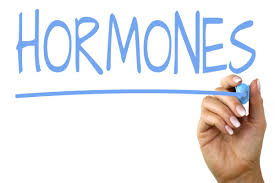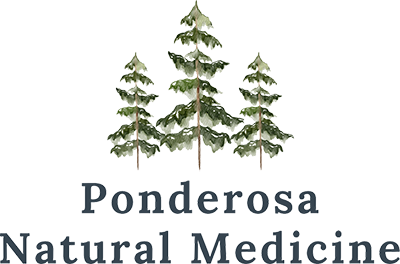
Balanced hormones are vital to health and wellness.
Balanced hormones are absolutely vital to health and wellness. However, a lot of people are using hormone treatments erroneously as a simple solution to various health issues. Not only are the long-term consequences of these therapies often uncertain and risky, but immediate side effects can be detrimental. I see a trend of using hormone replacement for any and all symptoms. Some of the symptoms patients/doctors are using this therapy for are fatigue, low sex drive, irregular menses, irritability, depression, hot flashes, and so on. However, there are many reasons someone could be experiencing these symptoms. Symptoms need to be investigated and treated in a holistic/ comprehensive manner. For any of the above symptoms, adrenal function needs to be evaluated and treated as well.
Let’s review some key hormones and their role in health:
-
Key Adrenal Hormones:
-
DHEA- produced in the adrenal glands, this hormone provides a key link between stress and reproductive hormone production. DHEA is a precursor for both estrogen and testosterone. Prolonged stress and illness can cause functional levels of DHEA to drop, when this occurs the production of downstream hormones begin to suffer. DHEA levels should be analyzed and corrected in order to safely boost estrogen and testosterone, if needed. However, DHEA, estrogen, and testosterone need to be monitored closely to prevent side effects of overproduction.
-
Cortisol: Cortisol is known as the “fight of flight” hormone and levels fluctuate greatly through out the day. Cortisol should be highest in the morning and lowest at night. However, many people have issue with cortisol dysregulation. Cortisol issues affect energy, sleep, sex drive, mood, weight and fertility (do these symptoms sound familiar?)
-
-
Key Reproductive Hormones:
-
Estrogen– Made in the ovaries of menstruating women or by conversion from testosterone in men and post-menopausal women. Responsible for the growth of cells in the reproductive organs and regulation of menses, maintenance of pregnancy and contributes to proper bone health. Also can contribute to the growth of cancer cells. Estrogen levels drop dramatically in menopause and can cause the typical menopausal symptoms. Short-term use of estrogens may be helpful for symptoms management. However, the risk of long-term use most likely outweighs the benefit. Why not look back at DHEA levels and optimize them?
-
Progesterone- Responsible for preparing the uterus for pregnancy during the second half of the menses. Levels increase during ovulation and the second have of the menstrual cycle. Low levels can contribute to many symptoms including PMS, infertility, repeat miscarriages and other symptoms during the second have of the menstrual cycle. Levels also drop significantly during menopause and contribute to peri-menopausal and menopausal symptoms.
-
Testosterone: Produced in males in the testes from the conversion of DHEA, also converts to estrogen. Proper levels are needed in men and women for sexual development, maintenance of proper sex drive and arousal and contributes to mood and energy. High levels in women are associated with irregular menses, irritability, acne and abnormal growth of body hair.
-
Hormone Replacement Therapy From the Mayo Clinic: “If you do decide to take HRT, it should be the lowest dose that helps and for the shortest time needed. You should check if you still need to take HRT every 3-6 months.”
“Testosterone therapy might be appropriate if:
-
You have reduced sex drive, depression and fatigue after surgically induced menopause, and estrogen therapy hasn’t relieved your symptoms.
-
You are postmenopausal, taking estrogen therapy and have a decreased sex drive with no other identifiable causes
-
Testosterone preparations are not approved by the Food and Drug Administration for use in women. So if testosterone is prescribed, it’s for off-label use.”
KEY POINTS FROM THE ABOVE EXCERPTS:
-
There is no mention of using testosterone in premenopausal women and use in women of any age is not approved by the FDA.
-
Any form of hormone replacement therapy should be for short term use and evaluated on a regular basis for efficacy, safety and appropriateness.
WAYS TO NATURALLY ADDRESS HORMONE BALANCE:
-
Proper Adrenal Support
-
DHEA supplementation (proper dosage, timing and duration needs to be monitored by a trained health are provider)
-
Cortisol management through use of nutrition, lifestyle and herbal medicine.
-
-
Proper diet and Nutrition
-
To balance blood sugar, provide high quality fats, and supply the vitamins and minerals needed for proper hormone balance.
-
-
Reduction of Endocrine Disrupter Exposure
-
Food supply- organic/non-GMO, reduction of use of plastic for food preparation and storage, proper cookware.
-
Personal Care Items- natural and organic only.
-
Cleaning Supplies- natural cleaning supplies only.
-
-
Herbal Medicine
-
Phytoprogestins- black cohosh, chaste tree berry
-
Phytoestrogens- maca, soy, red clover, oat
-
Adrenal support- licorice, rhodiola, withania
-
As you can see, the reproductive hormone system is complex and relies heavily on proper adrenal function. Hormone replacement therapy, especially mono-therapy with testosterone/estrogen is a concern when used improperly. Testosterone implants or replacement should be used very selectively in menstruating women and men of reproductive age (if at all). There are many ways that one can support proper hormone production and balancing using natural means.
Gives us a call to discuss ways to help naturally and safely balance hormone levels for greater energy, increased sex drive and arousal, regulation of menses, mood stability and so on!
Email: Dr.K@ponderosanaturalmedicine.com
Call: 720-722-0178
Website: www.ponderosanaturalmedicine.com

